Do you want to learn how to build an email list from nothing?
An email list is a must-have for any online business. Fortunately, building an email list is easier than you might think, even if you don’t have a website yet.
In this article, we’ll show you how to build an email list and 14 proven list-building strategies. Here’s a table of contents to help you find your way around:
-
- Add a Form to Every Page
- Use Popups (Carefully)
- Create an Irresistible Optin
- Optimize Your Signup Form
- Welcome New Subscribers
- Start a Waitlist
- Build a Landing Page
- Send Good Emails
- Ask Subscribers for Referrals
- Promote Your Email List on Social Media
- Host a Contest or Giveaway
- Link Your Signup Form In Your Email Signature
- Conduct a Survey
- Host Webinars
Let’s get started!
How to Build an Email List Fast
Email marketing is important because it’s a direct line to your customer and you have total control over when and how you reach your target audience.
This is in contrast to content marketing, social media, paid advertising, and most other digital marketing strategies. Content marketing relies largely on search engines to bring you traffic. Social media platforms use secret algorithms to control who sees your posts. Your paid ads can easily be outspent by a competitor. But no one can ever take your email list away from you.
Here’s how to build an email list quickly:
Step 1. Choose an Email Service Provider
An email service provider (ESP) is a web-based software that stores your email list and sends out emails for you. Some examples include Constant Contact, Brevo (formerly Sendinblue), Mailchimp, Hubspot, and more. Most have relatively affordable pricing, and some ESPs have very generous free plans that you can use when getting started.
Your ESP can create email signup forms that you can embed on your website. Many ESPs also provide hosted landing pages so you can start collecting email addresses before you even have a website.
When choosing an ESP, look for affordability, ease of use, scalability, segmentation and personalization features. We made a list of the best ESPs for small businesses if you need help choosing.
Step 2. Create a Signup Form
Once you have your ESP account, you need to create an email signup form. The technical steps vary from one ESP to another, but there are some elements that every email signup form should have:
- Call to action (CTA) and incentive: Why should people subscribe for your email list? This can be a lead magnet, a discount, or simply the content you include in your regular email newsletters.
- Branding: Some ESP form designers are more limited than others, but you should be able to customize the colors and fonts to look similar to the rest of your branding.
- Error and success message: Give potential subscribers a cue when they successfully sign up or if they need to correct an error.
- Other necessary information: Let visitors know what you’ll be using their email address for. If you’re in a country that enforces GDPR, make sure your form is compliant.
If you need inspiration, check out these best signup form examples.
Step 3. Share Your Email Signup Form
Once your email subscription form is created, share it far and wide!
You can embed the form in your website footer, sidebar, or header. Most ESPs will provide a code for you to do this, but the design options may not match your branding exactly. You can also use a tool like OptinMonster to create embedded forms that work seamlessly with your existing website.
Blog posts and other content pages are also a great place to add your email signup forms. You can add them inline with the content, or even use them to turn any blog post into a gated content upgrade.
Another way to share your email form is to create popups, slide-ins, or fullscreen welcome mats. OptinMonster makes it easy to do that with a drag-and-drop builder, a huge template library, and intuitive display rules to show your form to the right visitors at the right time.
For other ideas, read our list of high-converting places to add email sign up forms.
Seems pretty simple, right? Building an email list isn’t complicated, but it’s not always easy. Don’t worry, we’ve got you covered! Below, we’ll share some specific list-building strategies so you can pick the ones that work best for you.
14 Email List Building Strategies
1. Add a Form to Every Page
This may seem like common sense, but many entrepreneurs forget to do this. We spend so much time on our websites that it’s easy to assume that every visitor will wander onto a page with a newsletter signup form.
This isn’t the case! It’s better to assume that any page on your site is the only one a visitor sees before leaving. If you only have one interaction with a visitor, make sure you give them the opportunity to join your email list. In fact, email marketing campaigns can actually drive traffic back to your website.
You can put signup forms in the header, footer, and sidebar that are displayed on every page. Another strategy is to add forms inline with your content. For best results, match the lead magnet or optin with the page content.
We wanted to draw special attention to the About page. This page is one of the most frequently visited pages on any website, so it’s a prime page to place an email optin form.
2. Use Popups (Carefully)
Popups sometimes get a bad reputation, but the fact is they’re highly effective for grabbing attention.
To keep your popups from becoming annoying, always let the user fulfill their original intent on a page before asking them to do something else. For instance, if you have a blog post, give the visitor a chance to read some of the content before flashing an email popup form that might disrupt their browsing experience.
As another example, you may not want to display a distracting popup in the middle of a long-form sales page because you want your potential customers to read the whole page. But you might want an exit intent popup with one last incentive to appear when they’re about to leave the page.
The easiest way to create these advanced popups is with OptinMonster.
OptinMonster is the best list building app for business websites. With just a few clicks, you can create all kinds of eye-catching signup forms, such as:
- Lightbox popups
- Fullscreen welcome mats
- Slide-ins
- Floating bars
- Discount spin wheels
With the drag-and-drop builder and extensive template library, you don’t need any coding or design experience to build an email signup form.
OptinMonster also features the most powerful display rules in the industry. You can set campaigns to appear based on scroll distance, time on page, exit-intent, onsite retargeting, and so much more.
If you want to use popups to grow your email list, OptinMonster is your best bet.
3. Create an Irresistible Optin
To get more email signups, try leveling up your optin. You can offer more valuable coupons, better freebies, or exclusive access to products or booking opportunities to your email subscribers.
You can also work on making your email content so helpful that you don’t need any other incentive for people to sign up. For example, this newsletter gathers freelance writing opportunities and is so valuable that many freelancers pay to be on the list.
Check out our full list of optin ideas to get inspiration for your email list.
4. Optimize Your Signup Form
Even small changes in your signup form can boost your conversion rates.
The headline on your email form should tell your website visitors exactly why they want to subscribe to your newsletter. Try using some of these proven headline formulas on your signup form.
Similarly, a compelling call to action (CTA) can make a huge difference. You can see what happens when you flip the usual emphasis on benefits and warn visitors what they’ll miss out on if they don’t sign up. For instance, an outerwear eCommerce brand might say, “Don’t get left out in the cold!” rather than, “Buy a coat now!”
Another option is to create a 2-step optin. Instead of immediately asking new customers to subscribe, you present a question that they’re very likely to say yes to, such as, “Would you like to get free shipping on this order?” Because of the Zeigarnik effect, those who click yes will be more likely to finish the process of signing up that they already started.
If you’re using OptinMonster, you can easily A/B test different headlines, CTAs, and other elements in your signup forms.
5. Welcome New Subscribers
Send a welcome email or email series to new subscribers. Doing this has several important benefits.
First, it trains subscribers to look for your emails. People receive lots of emails, so your best chance of getting recognized is right after they sign up. Use that opportunity to make a good first impression.
Furthermore, welcome email campaigns tend to have high open and click rates. This boosts your overall deliverability and sender reputation, which means more subscribers overall will see your emails. Many email clients categorize email marketing newsletters as promotional and don’t show them in the main inbox unless they are opened frequently or whitelisted.
6. Start a Waitlist
If you haven’t actually opened your business yet, you might be wondering how to build an email list before launch.
Fortunately, a pre-launch waitlist is one of the easiest ways to build excitement and set yourself up for a successful start.
All you need to do is create a coming soon page with your signup form on it. WordPress users can use a plugin like SeedProd to build a coming soon page like the one below without any coding at all.
Once you have your waitlist page ready, you can start sending pre-launch marketing emails leading up to your launch.
7. Build a Landing Page
Those of you who don’t have a full website yet may want to know how to build an email list without a website.
If you already have a web hosting account and domain, you can create a simple email landing page. Or you can create a hosted signup page with most ESPs.
Once that’s in place, drive traffic to the landing page from your social media accounts, email signature, and word of mouth. You can definitely start building your new email list without a completed website.
8. Send Good Emails
Another underrated way to get more email subscribers is just to send really high-quality emails.
Share useful, actionable content that subscribers will want to share with their friends, like this newsletter on mental health and healthy relationships.
Make sure your emails are mobile-friendly, easy to read, and well-designed. Most ESPs offer mobile-friendly templates, but it’s always good to send yourself test emails to review on multiple devices.
User-generated content is another way to get more subscribers. People often like seeing their names and content featured on others’ platforms, so they’ll be more likely to tell others about your email newsletter if they’re featured in it.
9. Ask Subscribers for Referrals
Good content can go a long way in keeping your existing subscribers coming back for more. You can also ask those already on your list to forward to a friend or someone who would also like the content.
Make this easy for them by spelling out exactly who the newsletter is for and what kind of content new subscribers can expect. For example, this blogger includes a message suggesting referrals at the end of every email.
10. Promote Your Email List on Social Media
If you’re active on social media channels like LinkedIn or Instagram, you can turn some of that engagement into email subscribers. Put a link to a landing page or signup form on your profile, and remember to share about your lead magnet or email list regularly on social media. The shelf life of a social media post is short, so don’t assume that any follower has seen your previous posts about your email list.
11. Host a Contest or Giveaway
Everyone loves winning, so contests and giveaways can supercharge your email list.
You can run a raffle-style contest where your audience can earn contest entries for signing up and sharing about the contest. RafflePress makes it easy to set up a contest on your WordPress website.
Another contest idea is to randomly pick a winner from your current email subscribers. You can do this every month or quarter. If you don’t announce the date of the giveaway ahead of time, engagement can actually increase. Subscribers never know when a prize will be given out, so they’ll be more likely to stay on your list in case they’re the next winner.
You can run contests through your website, offline if you have a physical location, or both.
12. Link Your Signup Form In Your Email Signature
How many emails do you send a day? Every single one is an opportunity to promote your newsletter, especially since the recipient is already in their inbox and likely has email on their mind.
13. Conduct a Survey
Customer feedback surveys are not only a good way to collect valuable information but the perfect opportunity to build your email list.
Surveys let visitors feel important and that their opinion matters to you. We wouldn’t require an email address to answer the survey, but you can invite participants to join your email list at the end of the survey to hear about the results.
14. Host Webinars
Free webinars are an amazing lead generation strategy for growing your email list. Teach something quick and actionable related to your business to an audience of new leads who already care about what you have to say. Make it very clear that you’re using the webinar as a way to build your list and let them know what kind of email communication to expect from you.
We hope you found these list-building strategies helpful. Many of them can be done at low or no cost, which can be very helpful for early-stage business owners.
Now that you know how to build an email list, check out our list of email marketing automation tools that can make your life easier.
Ready to build your email list the easy way? Get started with OptinMonster today!
If you like this article, please follow us on Facebook and Twitter for more free articles.

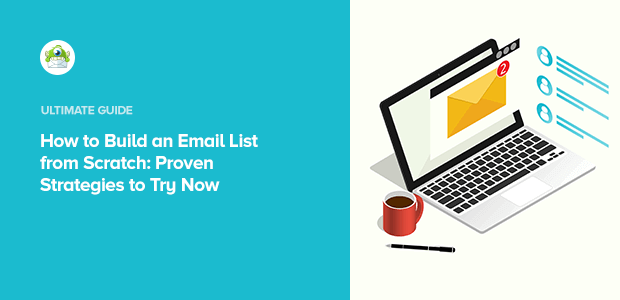
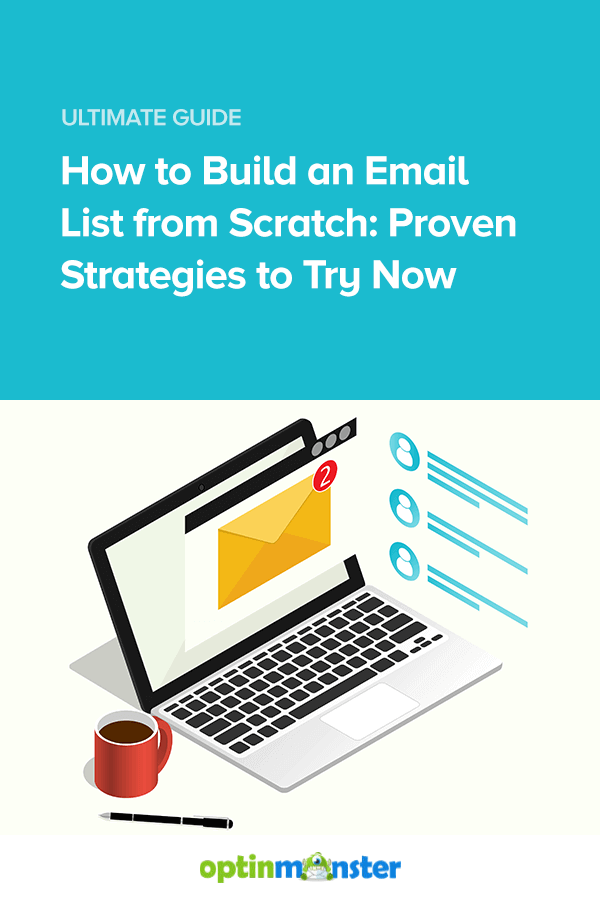
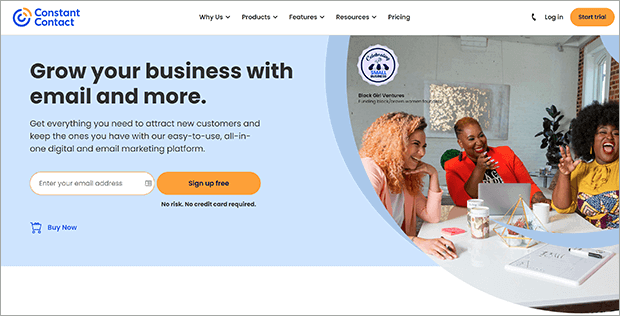
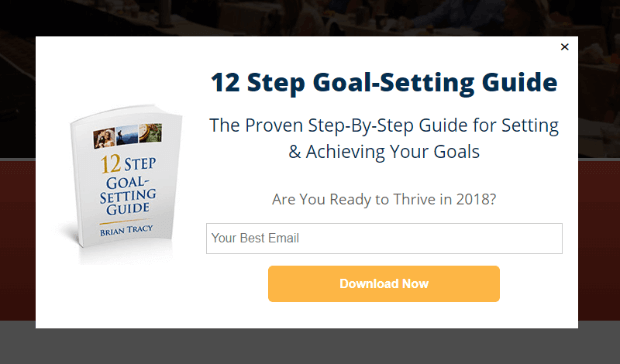
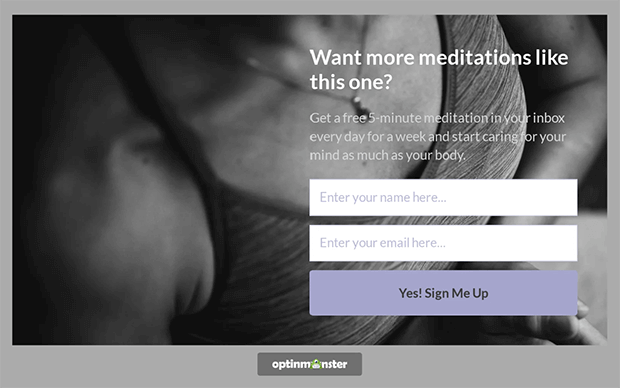
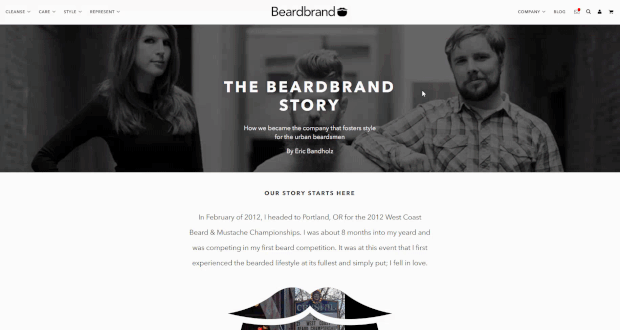
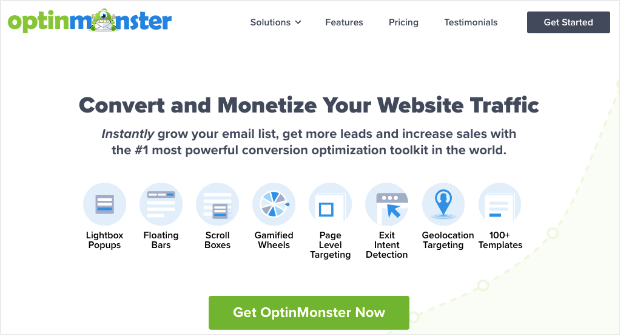

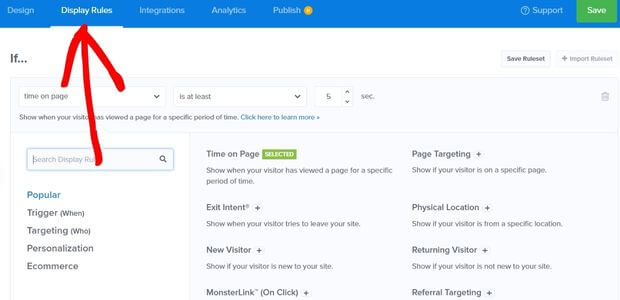



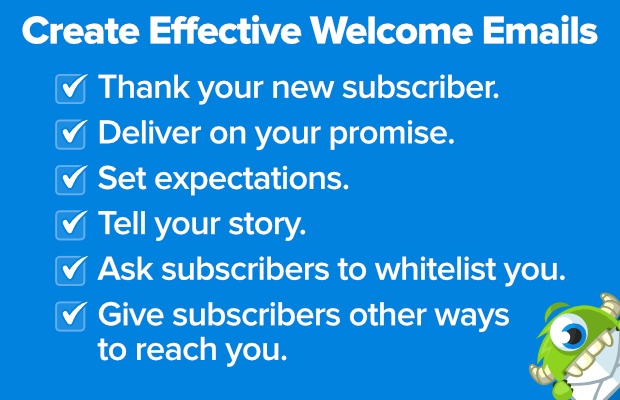
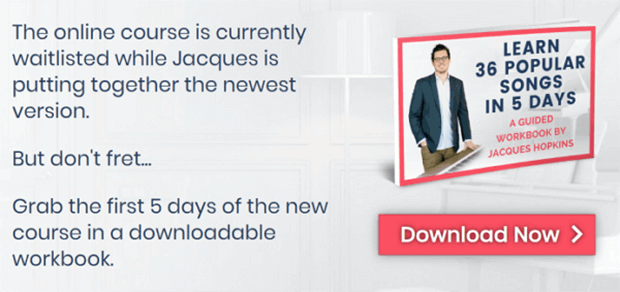
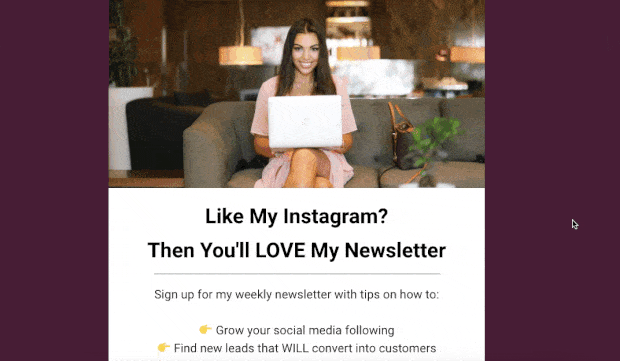
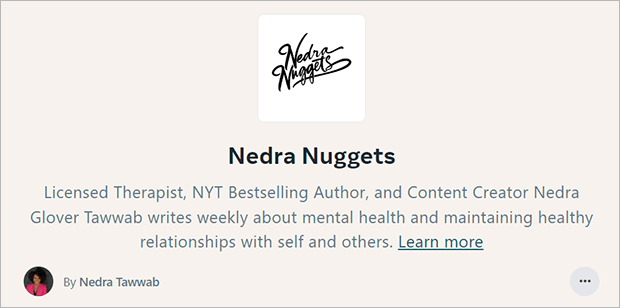

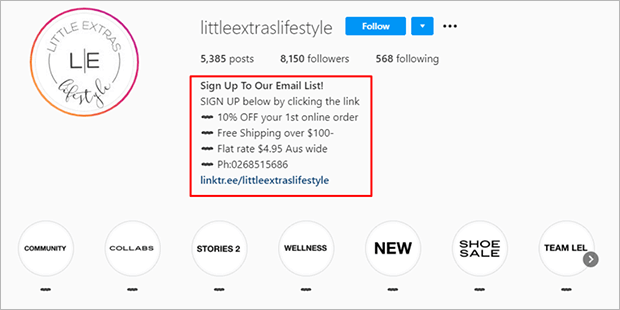

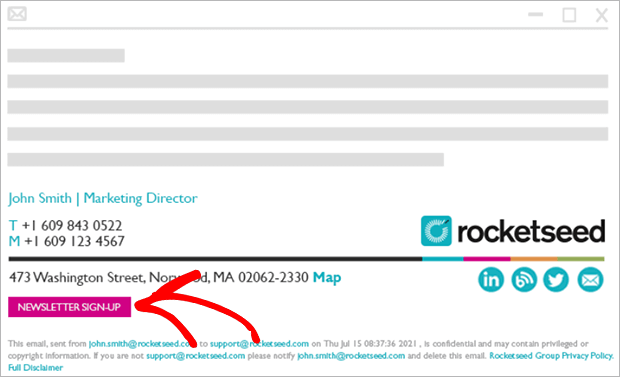
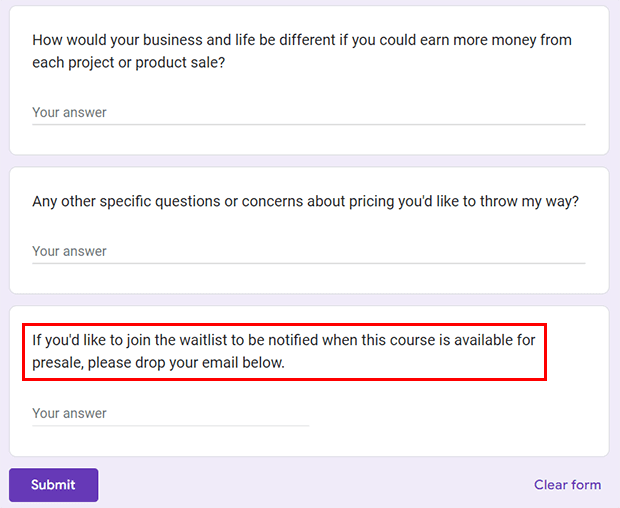


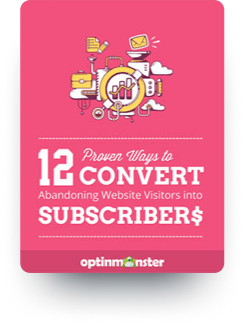


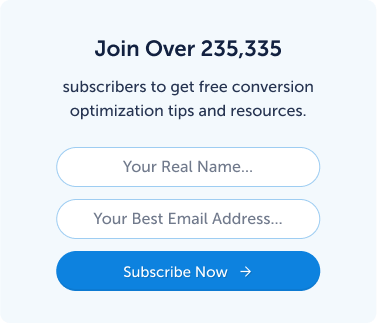



Add a Comment